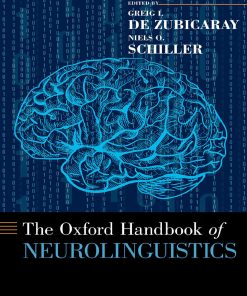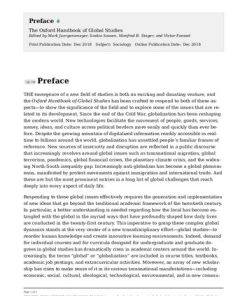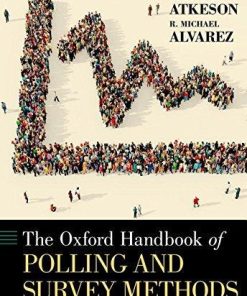The Oxford Handbook of Phenomenologies and Organization Studies François-Xavier De Vaujany
$50.00 Original price was: $50.00.$25.00Current price is: $25.00.
The Oxford Handbook of Phenomenologies and Organization Studies François-Xavier De Vaujany – Ebook Instant Download/Delivery ISBN(s): 9780192865755,0192865757, 9780192689672, 0192689673

Product details:
- ISBN 10: 0192689673
- ISBN 13: 9780192689672
- Author: François-Xavier De Vaujany
Phenomenological approaches to Management and Organization Studies offer a means to problematize ‘appearances’ in the field, allowing us to ‘see’ things in a different light and uncover what is hidden from our consideration by our theoretical or ideological assumptions. This handbook aims at showing the unexpected richness and diversity of phenomenological and post-phenomenological thinkers such as Husserl, Heidegger, Merleau-Ponty, Arendt, or Scheler, as well as others belonging to the French new phenomenology (Marion, Henry) or the German neo-phenomenology (Schmitz). It also details the contributions of thinkers like Bachelard, Deleuze, or Foucault whose inscription and departures from phenomenology are illuminated. In this process, phenomenologies are historically, critically, and openly discussed by leading scholars while highlighting the interweaving between phenomenologies and other streams such as process studies or critical perspectives. Beyond a theoretical description, the chapters also show how phenomenologies and post-phenomenologies can help management and organization scholars and students to understand a huge variety of contemporary phenomena such as distributed collective activity, artificial intelligence, digitalization of organizational processes, remote work, financial markets and financial instruments, entrepreneurial events, cinematographic organizing of social media, issues of place and emplacement, commons and communalization processes and questions of embodiment and disembodiment at work.
Table contents:
Part I Phenomenologies and Beyond: Origins, Extensions, and Discontinuities
1. Tracing Phenomenological Sensibilities in Continental and Post-Continental Philosophies
2. Husserl: Reason and Emotions in Philosophy
3. Heidegger, Organization, and Care
4. Gaston Bachelard and the Phenomenology of the Imagination
5. From Phenomenology to a Metaphysics of History: The Unfinished Odyssey of Merleau-Ponty
6. Phenomenology and the Multidimensionality of the Body
7. The Self in the World: The Hermeneutic Phenomenology of Paul Ricoeur
8. Phenomenology and the Political Philosophy of Hannah Arendt
9. Experience as an Excess of Givenness: The Post-Metaphysical Phenomenology of Jean-Luc Marion
10. Extending and Discontinuing Phenomenology with Michel Henry
11. Foucault and Phenomenology, a Tense and Complex Relationship: From Anti-Phenomenology to Post-Phenomenology
Part II The Experience of Organizing: Embodiment, Robots, and Affects in a Digital World
12. On the Way to Experience with the Phenomenological Venture of Management and Organization: A Literature Review
13. ‘In the Future, as Robots Become More Widespread’: A Phenomenological Approach to Imaginary Technologies in Healthcare Organizations
14. Max Scheler’s Phenomenology of Personalism and Paradox: Implications for Leadership Relations
15. At the Crossroad of Phenomenology and Feminist New Materialism: A Diffractive Reading of Embodiment
16. Bachelard’s Backdoor to Happy Business School Phenomenology
17. Exploring the Role of Bodies and Gestures in Management with Merleau-Ponty
18. Queering Organizational Appearances through Reclaiming the Erotic
19. Animal Ontologies: Phenomenological Insights for Posthumanist Research
20. ‘How about a Hug?’: Aesthetic of Organizational Experience and Phenomenologies
Part III Events and Organizing: Acceleration, Disruptions, and Decentring of Management
21. Is the Phenomenal Difference of the Entrepreneurial Event Opening on Its Repetition?
22. The Process of Depth: Temporality as Organization in Cinematographic Experience
23. Organization as Autopoietic ‘Understanding’?: Whitehead, Merleau-Ponty, and the Speculative Promise of a Process Phenomenology for MOS
24. What Silence Does: An Arendtian Analysis of Quaker Meeting Practices
25. Tuning into Things: Sensing the Role of Place in an Emerging Alternative Urban Community
26. Embodied Perception and the Schemed World: Merleau-Ponty and John Dewey
27. Enframing and Transformation: Serequeberhan’s African Phenomenological Approach
28. Phenomenology in Japan: A Brief History with a Focus on Its Reception in Applied Areas
Part IV Togetherness, Memory, and Instruments: Algorithms, Gestures, and Marginality in Organizing
29. Organ-izing Embodied Practices of Common(-ing) and Enfleshed Con-vivialities: Perspectives on the Tragicomedy of the Commons
30. It’s All Method: Schmitz and Neo-Phenomenology
31. Squatters and the Willing Suspension of Disbelief: Tales from the Occupied Theatre
32. Listening to the Sounds of the Algorithm: Some Remarks on Phenomenology and the Social Studies of Finance
33. Producing the Organizational Space: Buddhist Temples as Co-Working Spaces
34. Organizing Research Excellence: A Pheno-Ethnomethodological Approach to Studying Organizational Identity at Research Centres in the Global South
Part V Conclusion
35. Between Being and Becoming: Appearances and Subjectivities of Organizing
People also search:
the oxford handbook of phenomenologies and organization studies
what is organizational studies
what is organisational studies
what is organization in research
phenomenology studies
You may also like…
Business & Economics - Others
Pragmatism and Organization Studies 1st edition by Philippe Lorino 0192514981 9780192514981
Reference - Genealogy & Family History
Religion & Spirituality - Bible
The Oxford Handbook of Pauline Studies 1st edition by Matthew Novenson 0192545345 9780192545343
Uncategorized
Business & Economics - Others
Handbook of Industrial Organization Volume 5 1st Edition Kate Ho











